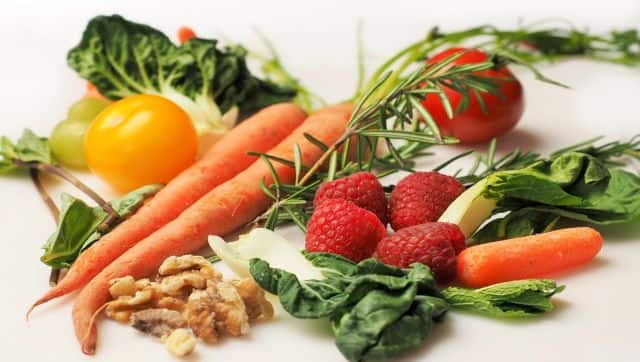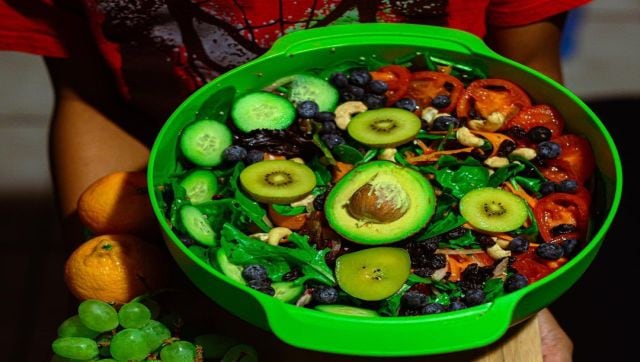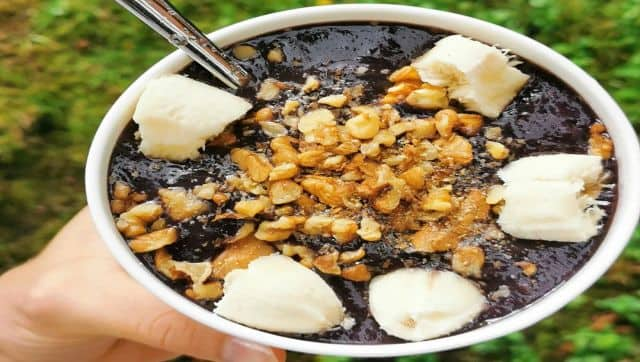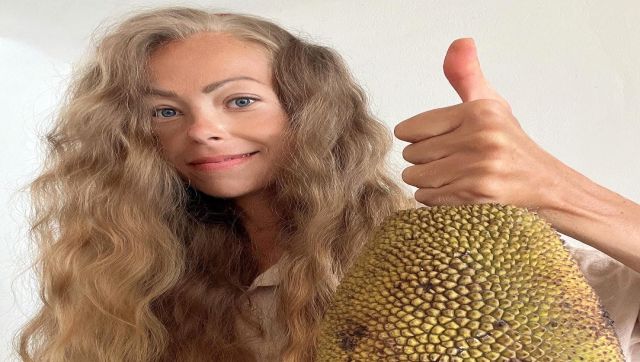A vegan food influencer’s tragic death has shocked the social media community as well sparked a conversation about the dangers of eating only raw food. While this practice may appeal to those who can’t or won’t cook and to those who want to shed the fat, experts, such as doctors and nutritionists, warn that such extreme dietary practices can have dangerous effects, even leading to death. The food community on Instagram was abuzz on Tuesday (1 August) after it was reported that famous vegan influencer Zhanna Samsonova, who went by Zhanna D’Art online, had passed away on 21 July reportedly of starvation after years of subsisting entirely on a raw vegan diet. The 39-year-old Russian national’s friend told Newsflash, “A few months ago, in Sri Lanka, she already looked exhausted, with swollen legs oozing lymph. They sent her home to seek treatment. However, she ran away again. When I saw her in Phuket, I was horrified.” Her friend added, “I lived one floor above her and every day I feared finding her lifeless body in the morning. I convinced her to seek treatment, but she didn’t make it.” The influencer, before her passing, had claimed she ate a “completely raw vegan diet” for the last four years, consuming just “fruits, sunflower seed sprouts, fruit smoothies and juices.” However, her friend said that Samsonova had eaten only the giant, sweet jackfruit and durian for the past seven years. [caption id=“attachment_12944612” align=“alignnone” width=“640”] In one of her posts, Zhanna Samsonova had written, “I see my body and mind transform every day. I love my new me, and never move on to the habits that I used to use.” Image Courtesy: @rawveganchef/Instagram[/caption] In fact, in one of her posts, she had written, “I see my body and mind transform every day. I love my new me, and never move on to the habits that I used to use.” Unfortunately, her friends believe her so-called healthy food choices were to blame for her death. “You don’t need to be a doctor to understand where this will lead,” one friend said of her all-durian and jackfruit diet. While Samsonova took the raw vegan diet to another extreme, it is a practice followed by many across the world, with many even espousing benefits of it. However, nutritionists and health experts differ. What is the raw vegan diet? Before diving into what experts have to say about this dietary practice, let’s understand what it entails. As the name suggests, raw veganism is a subset of veganism; it excludes all foods of animal origin and then adds the concept of raw foodism – foods should be eaten completely raw or heated at temperatures below 40–48 degrees Celsius. While this may sound new and a Gen Z fad, it is in fact been around for a long, long time. The Journal of the Academy of Nutrition and Dietetics state that raw veganism has been around since the early 19th Century when Sylvester Graham, an American Presbyterian minister, promoted the idea that people would never become ill if they only consumed uncooked foods. [caption id=“attachment_12944642” align=“alignnone” width=“640”]
 A raw vegan diet consists of food that is eaten uncooked or heated at temperatures below 40–48 degrees Celsius. Pixabay[/caption] A typical raw vegan diet is generally rich in fruits, vegetables, nuts, seeds, sprouted grains and legumes. It also tends to be naturally low in processed foods. But why would people choose to not cook their food and opt for such a meal? Proponents of this meal plan believe that raw and minimally heated foods are more nutritious than cooked ones. They contend that cooking food destroys its nutrients. Proponents of a raw vegan diet tend to be motivated by health (though there can be some crossover with animal rights and sustainability ethics). There are several studies that show that because a large part of a raw vegan diet is fruits, there’s a reduced risk of heart disease and stroke and also reduce the risk of diabetes. A raw vegan diet is also very effective at helping people lose weight and keep it off. In fact, studies consistently link raw food diets — including raw veganism — to lower amounts of body fat. And health experts opine that there are benefits to practising this diet, albeit for short durations. Dr Cijith Sreedhar, Chief Medical Officer, Prakriti Shakti, told Vogue India, “You are what you eat—eating the right food will give you good health, and raw food is the best food you can eat. It will give your body the goodness and vitality of the earth by establishing a strong and nourishing link between you and nature.” However, he added that consuming a raw food diet for a prolonged duration, can lead to nutritional deficiencies. [caption id=“attachment_12944692” align=“alignnone” width=“640”]
A raw vegan diet consists of food that is eaten uncooked or heated at temperatures below 40–48 degrees Celsius. Pixabay[/caption] A typical raw vegan diet is generally rich in fruits, vegetables, nuts, seeds, sprouted grains and legumes. It also tends to be naturally low in processed foods. But why would people choose to not cook their food and opt for such a meal? Proponents of this meal plan believe that raw and minimally heated foods are more nutritious than cooked ones. They contend that cooking food destroys its nutrients. Proponents of a raw vegan diet tend to be motivated by health (though there can be some crossover with animal rights and sustainability ethics). There are several studies that show that because a large part of a raw vegan diet is fruits, there’s a reduced risk of heart disease and stroke and also reduce the risk of diabetes. A raw vegan diet is also very effective at helping people lose weight and keep it off. In fact, studies consistently link raw food diets — including raw veganism — to lower amounts of body fat. And health experts opine that there are benefits to practising this diet, albeit for short durations. Dr Cijith Sreedhar, Chief Medical Officer, Prakriti Shakti, told Vogue India, “You are what you eat—eating the right food will give you good health, and raw food is the best food you can eat. It will give your body the goodness and vitality of the earth by establishing a strong and nourishing link between you and nature.” However, he added that consuming a raw food diet for a prolonged duration, can lead to nutritional deficiencies. [caption id=“attachment_12944692” align=“alignnone” width=“640”] A typical raw vegan diet is generally rich in fruits, vegetables, nuts, seeds, sprouted grains and legumes. It also tends to be naturally low in processed foods. Image Courtesy: @guapdonvegan/Instagram[/caption] What are the risks associated with raw vegan diet? However, despite the many proponents of this diet, there are multiple dangers associated with it. Health issues such as vitamin and mineral deficiencies are linked to the diet; the raw vegan diet excludes a wide range of foods, so there is a risk that a person may not get all of the vitamins and minerals they need. A 2019 study had reported that the raw vegan diet may not provide enough: proteins, vitamin B12, vitamin D, iron, calcium, selenium and zinc. For the unaware, a deficiency of vitamin B12 can lead to anaemia, nervous system damage, infertility, heart disease and poor bone health. A study of the raw vegan diet found an association between the diet and lower bone density. A person with low bone density has a higher risk of bone fractures and osteoporosis. Research into the raw vegan diet has also revealed that it has a negative effect on menstruation, with approximately 30 per cent of people under age 45 on long-term raw food diets having irregular periods or their periods stopped entirely. [caption id=“attachment_12944702” align=“alignnone” width=“640”]
A typical raw vegan diet is generally rich in fruits, vegetables, nuts, seeds, sprouted grains and legumes. It also tends to be naturally low in processed foods. Image Courtesy: @guapdonvegan/Instagram[/caption] What are the risks associated with raw vegan diet? However, despite the many proponents of this diet, there are multiple dangers associated with it. Health issues such as vitamin and mineral deficiencies are linked to the diet; the raw vegan diet excludes a wide range of foods, so there is a risk that a person may not get all of the vitamins and minerals they need. A 2019 study had reported that the raw vegan diet may not provide enough: proteins, vitamin B12, vitamin D, iron, calcium, selenium and zinc. For the unaware, a deficiency of vitamin B12 can lead to anaemia, nervous system damage, infertility, heart disease and poor bone health. A study of the raw vegan diet found an association between the diet and lower bone density. A person with low bone density has a higher risk of bone fractures and osteoporosis. Research into the raw vegan diet has also revealed that it has a negative effect on menstruation, with approximately 30 per cent of people under age 45 on long-term raw food diets having irregular periods or their periods stopped entirely. [caption id=“attachment_12944702” align=“alignnone” width=“640”] The raw vegan diet also comes with several risks. Lack of proper vitamins, tooth decay and lower bone density are just some of the problems linked to consuming an only raw vegan meal. Image Courtesy: @frithjof_9/Instagram[/caption] Raw vegan diets may also increase the likelihood of tooth decay. This may be especially true of diets which include a lot of citrus fruits and berries. One expert has also noted that without access to a variety of foods year-round that can be eaten raw, one tends to rely on single-food sources. “The problem with the raw food diet is where do you get your energy food?” Caldwell Esselstyn of the Cleveland Clinic, the doctor who convinced Bill Clinton to adopt a plant-based diet, told LiveScience. “You get it from pouring down nuts,” he said, and these are high in fat and not healthful when eaten in excess. Doctors also state that no known human culture has ever attempted to survive solely on raw plant foods. It is the raw-only diet that is unnatural, because it is impossible to survive on this diet without modern conveniences such as refrigerators, storage devices and easy access to packaged foods. Moreover, a raw vegan diet can be cost-prohibitive and time consuming; rather than cooking, one has to spend time juicing or dehydrating the food items. The demise of Zhanna Samsonova is a cautionary tale of extreme dietary practices and puts the focus back on the need to eat well, exercise and live a wholesome life. With inputs from agencies
The raw vegan diet also comes with several risks. Lack of proper vitamins, tooth decay and lower bone density are just some of the problems linked to consuming an only raw vegan meal. Image Courtesy: @frithjof_9/Instagram[/caption] Raw vegan diets may also increase the likelihood of tooth decay. This may be especially true of diets which include a lot of citrus fruits and berries. One expert has also noted that without access to a variety of foods year-round that can be eaten raw, one tends to rely on single-food sources. “The problem with the raw food diet is where do you get your energy food?” Caldwell Esselstyn of the Cleveland Clinic, the doctor who convinced Bill Clinton to adopt a plant-based diet, told LiveScience. “You get it from pouring down nuts,” he said, and these are high in fat and not healthful when eaten in excess. Doctors also state that no known human culture has ever attempted to survive solely on raw plant foods. It is the raw-only diet that is unnatural, because it is impossible to survive on this diet without modern conveniences such as refrigerators, storage devices and easy access to packaged foods. Moreover, a raw vegan diet can be cost-prohibitive and time consuming; rather than cooking, one has to spend time juicing or dehydrating the food items. The demise of Zhanna Samsonova is a cautionary tale of extreme dietary practices and puts the focus back on the need to eat well, exercise and live a wholesome life. With inputs from agencies
Raw vegan food influencer Zhanna Samsonova, who had a mass following on Instagram, died late in July, reportedly of starvation. She ate only jackfruit and durian for the past seven years. Her death has put the focus back on extreme diet plans, with experts citing the many dangers of such food fads
Advertisement
End of Article


)

)
)
)
)
)
)
)
)



